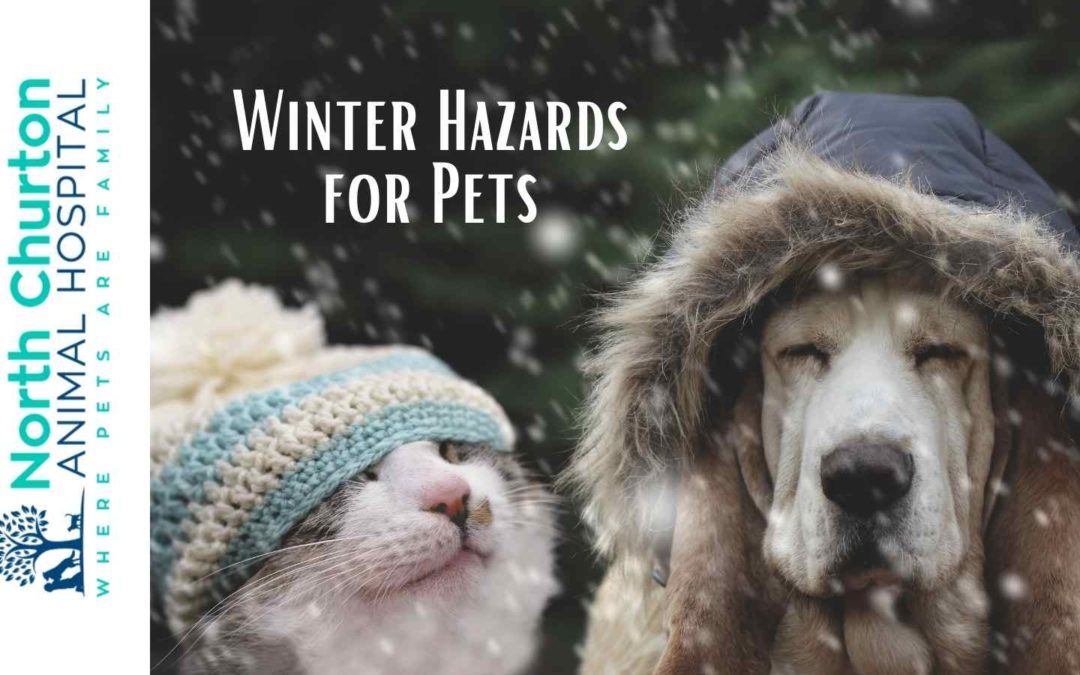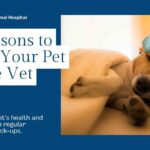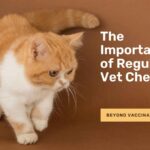As the weather changes and holidays approach, your pet’s normal environment may be changing. It is important to be aware of the types of hazards your pet may face in the coming winter months. Here are important winter hazards for pets!
Here are important winter hazards for pets!
Outdoor Hazards
1. Antifreeze Poisoning: This can cause potentially fatal kidney failure. At first, your pet may appear drunk, so be very aware and seek medical attention immediately if you suspect there has been exposure to antifreeze.
2. Freezing Temperatures: Pets are as sensitive to cold as humans and can fall victim to hypothermia. If your pet plays or sleeps outside, ensure they are protected from the elements during severe weather.
3. Ice and Snow: If you have been outside with your pet, be sure to check their paws for built-up ice or snow. If either become trapped for too long, your pet risks frostbite. When returning from outdoor time, wipe each paw with a warm, wet washcloth and check for ice, snow, or cuts.
Indoor Hazards
1. Household Plants: Poinsettias are lovely during the holidays but can be toxic to dogs. Holly and mistletoe plants and berries are also toxic to dogs. If you notice your pet has nausea, diarrhea, excessive drooling, or abdominal pain, seek medical attention immediately.
2. Sedentary Lifestyle: It is relaxing to spend the winter season cozied up on the couch but remember that your pets need exercise to stay healthy. Inactivity can lead to weight problems which can lead to other health complications.
3. Excessive Food Intake: Winter is also a time for delicious meals and plenty of them. Be aware of what and how much food your pet is consuming.
Pets are family and we want to do all we can to ensure your family’s safety and health this winter season.
Emergency? Our vets can help!
If you do have an emergency this winter, contact Dr. Jim and his staff during normal business hours:
Durham Animal Hospital 919-620-7387
North Churton Animal Hospital 919-644-7387
We also partner with Triangle Veterinary Referral Hospital for emergency after-hours care.
Durham: (919) 489-0615
Holly Springs: (919) 973-5620
NC State Emergency Services – (919) 513-6911
If you suspect your pet has been exposed to a poisonous substance you can also call the ASPCA Animal Poison Control Center:
ASPCA Animal Poison Control Center
(888) 426-4435
A source of information and help for emergency assistance by phone for suspected cases of animal poisonings as well as helpful library links and information on substances toxic to animals. If you call about a possible pet poisoning, and poison control recommends that you see a vet, they will continue to consult with us (your veterinarian). We almost always consult poison control as part of our treatment plan for any possible poisoning. Generally, there is a $60-$75 fee for this service, but if you have a microchip through our hospital this service may be free of charge.






